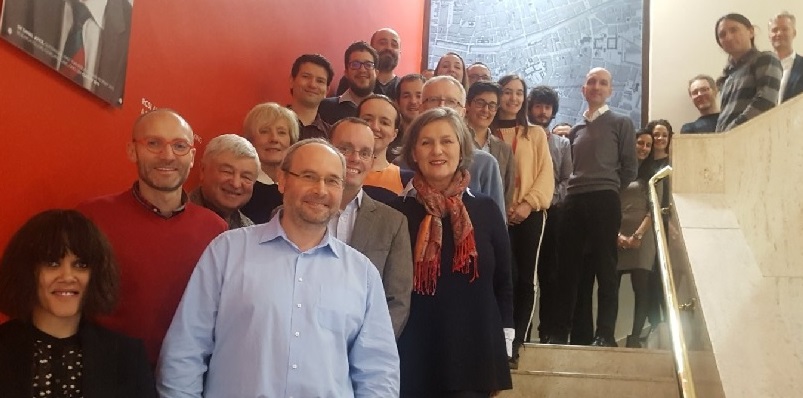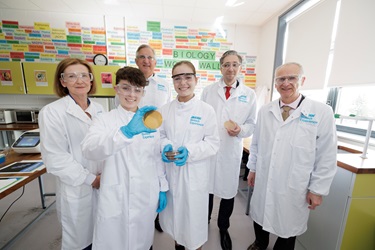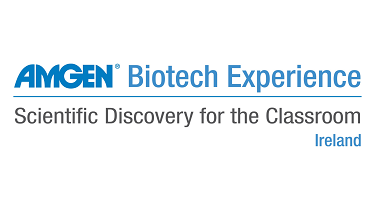Systems Biology Ireland to Bring the Power of Systems Medicine to Colorectal Cancer Patients

Researchers from Systems Biology Ireland (SBI) are participating in a €6 million international study called ‘COLOSSUS’ to harness the power of systems biomedicine, network analysis and mathematical modelling to improve treatments for colorectal cancer patients.
“Cancer biomarkers are used by oncologists to guide important treatment decisions, but are static measurements only providing a snapshot of the patient’s disease state. In contrast, mathematical modelling can predict the behaviour of the system and how it evolves over time”, explains Dr Dirk Fey, Research Fellow at SBI, who will be leading the modelling work at SBI that also involves two partners from small and medium enterprises; GeneXplain and Optimata Ltd, “We have previously shown that these network models outperform classical genomic biomarkers for neuroblastoma, a childhood cancer. Of course, one needs to know which networks actually make the cancer aggressive, and the colorectal cancer network is different from the neuroblastoma network.”
Therefore, SBI’s team will use advanced proteomics measurements to characterize colorectal tumour samples from patients. “These data are useful to find out which networks are affected in different patients” mentions Dr David Gomez, “and can be used by our modelers to build personalised mathematical models specifically for colorectal cancer.”
“From a modelling point of view, the tumour data are measured parameters in the static, drug-free condition,” explains Dirk Fey. “By simulating our mathematical models with the measured parameters, we should be able to predict how the network changes in responds to treatment. Basically, our model calculates how the network changes over time, and what this change means for the patient’s survival chances.”
COLOSSUS is led by the Royal College of Surgeons in Dublin, involves 14 partners from 8 countries and was the highest ranked application from more than 200 European projects submitted under a Horizon 2020 Personalized Medicine Call – New Concepts in Patient Stratification. The project will focus on a genetically defined form of colorectal cancer (MSS RAS mt mCRC) which is incurable once patients develop resistance to existing therapies. “Currently, there are limited treatment options for patients with microsatellite stable RAS mutant colorectal cancer when they develop resistance to existing therapies,” said study lead, Professor Annette Byrne, Associate Professor, RCSI. “COLOSSUS will identify new ways to classify patients with this form of metastatic colorectal cancer which will enable our research team to identify new treatment strategies.”
Colorectal cancer is the third most common cancer in Europe and affects about 420,000 people per year, with 150,000 colorectal cancer related deaths in 2012.
Follow us on:
Twitter: @COLOSSUSEU (https://twitter.com/COLOSSUSEU)
Facebook: https://www.facebook.com/Colossus-Project-162345874393720/
Find out more at www.colossusproject.eu

